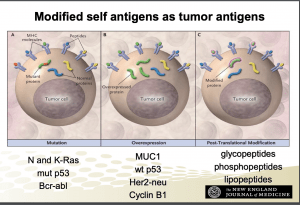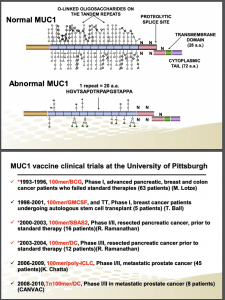 IUIS-ALACI-ACAAI Immuno-Colombia 2021 course took place remotely between 5th to 16th April. The theme of this meeting was “Mechanisms and Approaches to Immunotherapy for Cancer and Chronic Inflammatory Diseases”.
IUIS-ALACI-ACAAI Immuno-Colombia 2021 course took place remotely between 5th to 16th April. The theme of this meeting was “Mechanisms and Approaches to Immunotherapy for Cancer and Chronic Inflammatory Diseases”.
 Prof. Olivera Finn from the University of Pittsburgh gave an informative talk on therapeutic cancer vaccines. She pointed out that it is only as recent as the 1980s that scientists started to consider immunotherapy as a method to combat cancer. The ideal therapeutic agent should be specific, non-toxic, durable and cost-effective. From 1960 to date, the monthly cost of cancer treatment and care has been on the rise, with immune checkpoint inhibitors being the most expensive, making such cancer treatments inaccessible in most middle and low income countries. Due to this, cancer vaccines remain the best solution to fight the disease.
Prof. Olivera Finn from the University of Pittsburgh gave an informative talk on therapeutic cancer vaccines. She pointed out that it is only as recent as the 1980s that scientists started to consider immunotherapy as a method to combat cancer. The ideal therapeutic agent should be specific, non-toxic, durable and cost-effective. From 1960 to date, the monthly cost of cancer treatment and care has been on the rise, with immune checkpoint inhibitors being the most expensive, making such cancer treatments inaccessible in most middle and low income countries. Due to this, cancer vaccines remain the best solution to fight the disease.
 The first therapeutic cancer vaccine trial was based on a non-viral immunogen because most cancers are of non-viral aetiology. Prof Finn then outlined that most cancers are a result of:
The first therapeutic cancer vaccine trial was based on a non-viral immunogen because most cancers are of non-viral aetiology. Prof Finn then outlined that most cancers are a result of:
- mutation of genes such as tumour protein antigen p53 (p53) and BCR-ABL
- overexpression of genes such as Mucin-1 (MUC1) and wild type p53
- abnormal post-translational modification of some proteins.
She then presented summary data on the MUC1 protein-based vaccines that have been tested in clinical trials and demonstrated modest immunogenicity (20% of vaccinees) and success rates (approximately 20% of vaccinees had a prolonged time to recurrence).
Are there any immunological factors that contribute to the modest effectiveness of therapeutic cancer vaccines? Yes, the immunosuppressive nature of the immuno-suppressive tumour micro-environment, mainly mediated by Myeloid-Derived Suppressor Cell (MDSC), is an important factor as to why many cancer vaccines are not as effective. To circumvent this, Prof. Finn proposed that future therapeutic cancer vaccines should focus on vaccinating individuals during the pre-malignant cancer stages. Further, scientists should invent ways to combat MDSCs and the immunosuppressive tumour microenvironment.
- Interested in learning more about cancer vaccines: read advanced pre-course material on Cancer Vaccines.
- Full lecture recording available at IUIS-ALACI-ACAAI Immuno-Colombia 2021 Lecture week 2
Summary by Wilbert Mbuya










